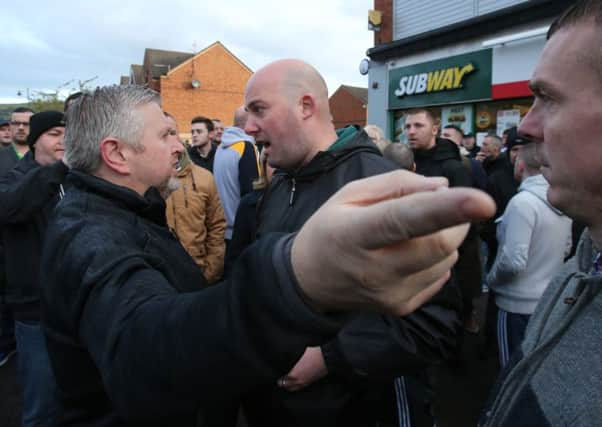Priest to tell Colombians about NI's peace problems


Gary Donegan said among the issues he will raise are the reactions of families of Troubles victims when they see that those who hurt them now have positions of authority.
Father Donegan – who was a long-standing parish priest in Belfast’s Ardoyne until September – was recently in the news after coming up with a plan for a Troubles memorial beside the old Twaddell loyalist camp site in north Belfast.His idea was to commemorate civilians, police, soldiers, and paramilitaries alike, but it has received little political support.He told the News Letter that he had been planning to travel to Colombia last week.
Advertisement
Hide AdAdvertisement
Hide AdAlthough the trip has now been postponed, he still intends to go, possibly in the new year.
Colombia is currently seeking a permanent end to violence from Marxist guerrillas known as the FARC.
A deal was proposed which would have seen an end to its campaign, in return to things such as entitlement to seats in congress and limited punishments for perpetrators.
The public very narrowly rejected it in a referendum last month, but nevertheless efforts to salvage an agreement have continued.
Advertisement
Hide AdAdvertisement
Hide AdFather Donegan said his planned visit is “a cross-community thing”.
He said that it is “one thing winning the peace; it’s a different thing maintaining the peace”, and that he will explain “what it entailed for us, and what it continues to entail”.
Asked specifically what kind of things he was going to talk about, he said: “Our experience of prisoners’ early release, people on licence, how that affects both them [and] the former victims - all of that kind of stuff.
“What actually happens now - do they integrate into society or don’t [they]?
Advertisement
Hide AdAdvertisement
Hide Ad“Looking at their situation in terms of FARC, where they’d actually go, how would they integrate into the political sphere - all that kind of stuff.
“Just basically talking about experiences in terms of how it actually seems to cost people at the coal-face, as it were.”
For example he said: “If you are somebody who’s lost a relative, and then the next thing you find that somebody that was either a director or directly involved is suddenly... a community leader or even a political leader - how does that actually affect you?
“That is the sort of stuff that actually happens.”
Both left-wing guerrillas and right-wing paramilitaries (whom Human Rights Watch says have “close ties to security forces and politicians”) have carried out atrocities during the decades-long conflict – continuing right up until the present.
Advertisement
Hide AdAdvertisement
Hide AdIn September, Human Rights Watch had said the peace deal on offer with the FARC would aid all those who committed atrocities, whether on the state side or guerrillas, and branded this “a surrender of justice that no one could reasonably see as necessary”.